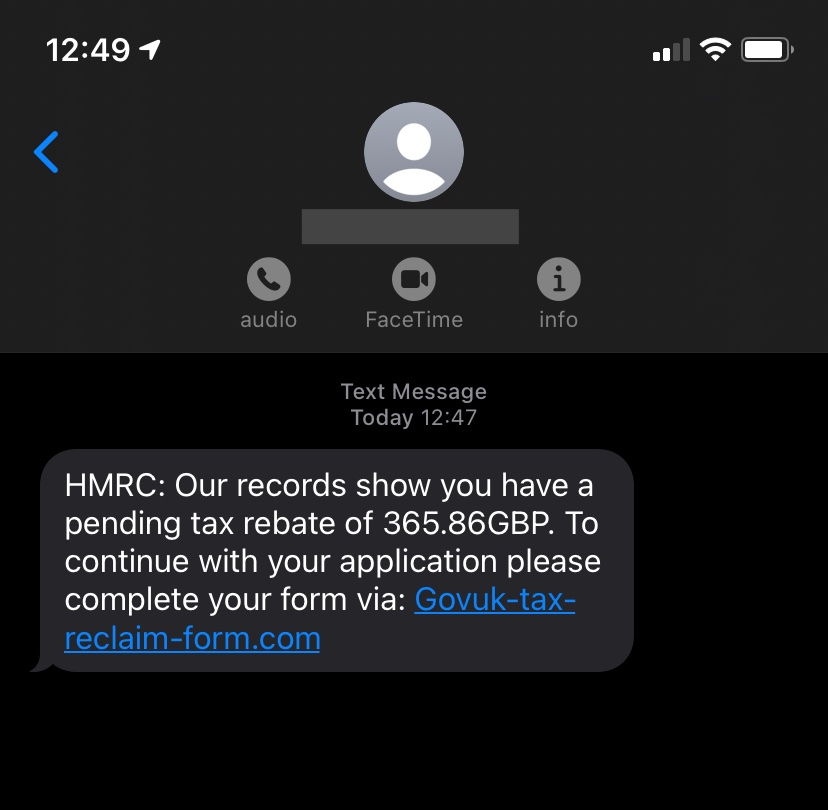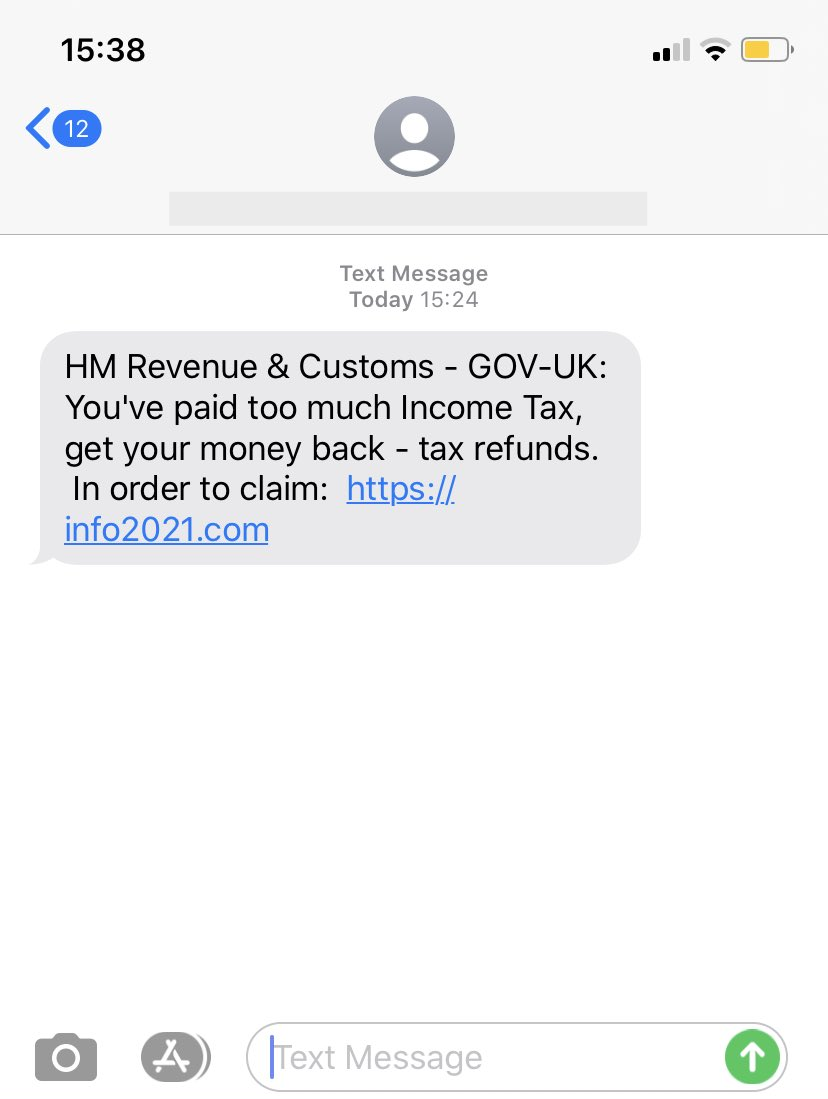Cyber Security News Aggregator
.Cyber Tzar
provide acyber security risk management
platform; including automated penetration tests and risk assesments culminating in a "cyber risk score" out of 1,000, just like a credit score.Beware of Phishing Scams when filing your Tax Return
published on 2022-01-18 12:53:57 UTC byContent:
Alongside ,Action Fraud and the ,HMRC, we want to urge anyone who is self-employed and sending in their Self Assessment tax returns to stay alert, with the continued emergence of copycat HMRC websites and phishing email scams.
- Since 2017 HMRC technical controls have prevented 500 million scam emails from reaching HMRC’s customers.
- New HMRC controls have prevented 90% of the most convincing SMS messages from reaching the public.
- Nearly 800,000 tax-related scams were reported in the last year.
“It’s important to remember if you’re contacted out the blue by someone purporting to be from HMRC asking for your personal or financial details, or offering you a tax rebate, grant or refund, this could be a scam."
In the last 12 months, the HMRC has responded to more than 800,000 tax-related scams and received nearly 360,000 bogus tax rebate referrals. More than 4 million emails and SMS will be sent this week to Self Assessment customers pointing them to guidance and the latest support. Remember to stay alert and don't be taken in by any malicious emails, phone calls or texts, if you don't think they are genuine HMRC communications.
Scams include threatening recipients with immediate arrest for tax evasion and others offer a tax rebate. If you receive any communications like these they should set alarm bells ringing. If you are in any doubt whether the email, phone call or text is genuine, you can check the ,‘HMRC scams’ advice on GOV.UK and find out how to report them.
⚠️ The next tax return deadline is 31 January 2022.

Scammers use language which is intended to convince you to hand over your personal information and bank details. Criminals will then use this personal information to access your bank accounts and trick you into paying fictitious tax bills, or by selling on your personal information to other criminals.




Above are some examples of phishing text messages used by scammers.
“Never let yourself be rushed. If someone contacts you saying they’re from HMRC, wanting you to urgently transfer money or give personal information, be on your guard. HMRC will also never ring up threatening arrest. Only criminals do that. Scams come in many forms. Some threaten immediate arrest for tax evasion, others offer a tax rebate. Contacts like these should set alarm bells ringing, so if you are in any doubt whether the email, phone call or text is genuine, you can check the ‘HMRC scams’ advice on GOV.UK and find out how to report them to us." Myrtle Lloyd, HMRC’s Director General for Customer Services
Report suspicious emails and text messages
- Forward details of suspicious emails to HMRC’s phishing team phishing@hmrc.gov.uk
- To help us deal with your email as quickly as possible, you should give details of what you’re reporting in the subject line (for example ‘Suspicious email address’).
- Forward suspicious text messages to 60599. Text messages will be charged at your network rate.
- HMRC will never send notifications of a tax rebate or ask you to disclose personal or payment information by text message.
- You can check the ,list of genuine GMRC contacts here.
Would your business pass a Cyber Health Check?
With 83% of businesses facing phishing attacks such as scam HMRC emails, are you confident you and your staff have the knowledge to protect your business? Take the ,Cyber Resilence Centre Cyber Health Check today!
https://www.nwcrc.co.uk/post/tax-returns-fraud-phishing-scams
Published: 2022 01 18 12:53:57
Received: 2022 02 09 00:51:25
Feed: North West Cyber Resilience Centre
Source: National Cyber Resilience Centre Group
Category: News
Topic: Cyber Security
Views: 16
